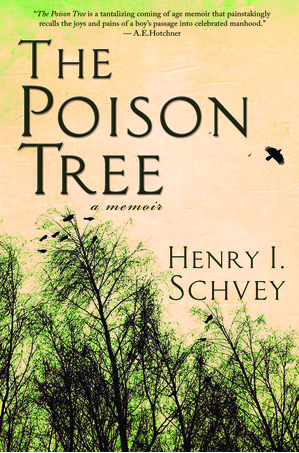Share the post "Chatting with Irene Hannon"
Chatting with Irene Hannon
by Diana Davis, Walrus Contributor

Irene Hannon - Photo by DeWeesePhotography.com
You write in two genres Christian romance novels and Christian suspense novels; and spend about six months on each, correct?
Currently I write 2 ½ novels a year, more time’s spent on the suspense novels for two reasons: they are larger then the romance novels, and they require more research to be accurate.
Have trouble switching gears within that cycle?
I get too emerged in my main characters to keep two books going at the same time, so I try to schedule it so that I complete a book, then have a week or two off before I jump into the next one.
I was impressed with the authenticity of your locations.
I think you should physically experience a book’s location before you can accurately write about it. I vacationed in Nantucket so I could experience the seashores, sand dunes, and small shops to accurately depict its flavor. The only exception to that rule was on my first suspense novel which was set in Afghanistan. I was not willing to put my life on the line for research. But I did an incredible amount of research on-line as to the terrain, the streets of Kabul, the history, the culture, the customs, etc. So much so, that my husband said he feared the Department of Homeland Security would be raiding our home shortly. (laughs). You have to be authentic, or your readers will know it.
Speaking of your husband, I understand he’s a talented artist. Did he do the illustrations on your novel covers?
No, he is extremely talented at pen and ink, acrylics and three-dimensional art, but art is his avocation. Most writers have little input about their book covers. My suspense publisher does ask my impressions of my characters, but generally, the publishing house selects the models, has them photographed, and has their graphic artists design the cover.
You once said, “An experienced writer can break the rules.” In An Eye for an Eye, you gave the acronyms and then in the next sentence, or so, you would explain the full name of the agency. Once you mentioned HRT a couple times and waited until later to give the agency name. Comment?
That was an early book, and I would probably handle it differently today. At the point when I first wrote HRT, I was in the head of the character who worked there, so he would automatically think HRT. The beginning of any novel is really tricky. Sometimes authors write two or three full paragraphs of background material. I read it and automatically think “data dump, interrupting the flow of the story.” It’s better to interweave information gradually.
You have an undergrad degree in psychology from Saint Louis University. Has that aided your writing career?
Yes, but we all use psychology in our writings, more subconsciously than consciously. Authors don’t need a psychology degree, but they do need to be students of human nature, Writing is about relationships, the interactions of people with problems, and life experiences, so become a people watcher.
You once said, “As important as it is to polish a book before sending it out, remember that it will never be perfect. So make sure the book is the best you can write at that point in your career, and go for it.” Any further comments to young writers?
Before you send your book out, let experienced writers look at it—the more the better. It can be a teacher, or a writing conference friend, or you could enter it in a contest, I’ve gotten invaluable feedback from judges. And always be open to constructive criticism so you can grow. The biggest mistake young writers make is thinking their words cannot be improved. You can always learn new things. Know where to start your book. With editors, you have to hook them within the first page and a half or your work goes into the reject pile. Publishing is a brutal business, so don’t give up your day job until you are firmly entrenched with a publisher.
You have won two RITA awards, the Daphne du Maurier award, two Reviewer’s Choice Awards and a HOLT medallion, among others. Did winning these awards encourage your writing?
I have a two-part answer. Writing is working in isolation. Awards and reader mail are the only real feedback you have. The awards are validation by the industry that you are good at your job. Awards help you discipline yourself to sit and write on the days when you would rather be doing something else. One example where an award made a BIG difference in my life: I was the head of corporate communications at Anheuser Busch, and my life was at a crossroads. I went to the Romance Writers of America conference and won my first RITA award—the “Oscar” of romance fiction, and I was offered a three-book contract with Love Inspired. That’s when I gave up my day job for writing full-time.
In An Eye for an Eye, you used the word “discombobulated” and I wondered if you were a Midwesterner?”
(Laughs) Sure, I was born, and for the most part, raised in St. Louis. We lived in the Brentwood area close to the library. I would walk to the library and return home with the daily quota of books. I loved Nancy Drew books. I went and picked up four books and went home, sat under my grandfather’s tree and read them all. The next day, I returned them and checked out four more–for four days in a row. When I returned them, the librarian said, “Honey, you cannot be reading that fast, now why don’t you take these back home and read them well,” and she would not allow me to have more books. I went home upset and told my mother. Mother was an assertive woman who called the library. After that, I had no more trouble. In fact, I worked at that library all through high school and college. And I worked with the woman who denied me permission to check more books; we became good friends and laughed about the incident.
You and the Mr. go to a favorite coffee shop on Saturday mornings. Where?
Starbucks to unwind and reconnect.
What else would you like to tell our readers?
Don’t discount Christian romance and suspense books. You don’t have to be Christian to enjoy them. I have many Jewish readers too. If you like contemporary romances without graphic sex, four letter words, and gratuitous violence, you’ll like my books. And to quote Mary Higgins Clark, “You don’t need those to tell a good story!”
———————————————
Click here to read about Ms. Hannon’s Guardians of Justice in her comments to our July “From the Publisher’s Desk” article or got to Ms. Hannon’s website for more details!


